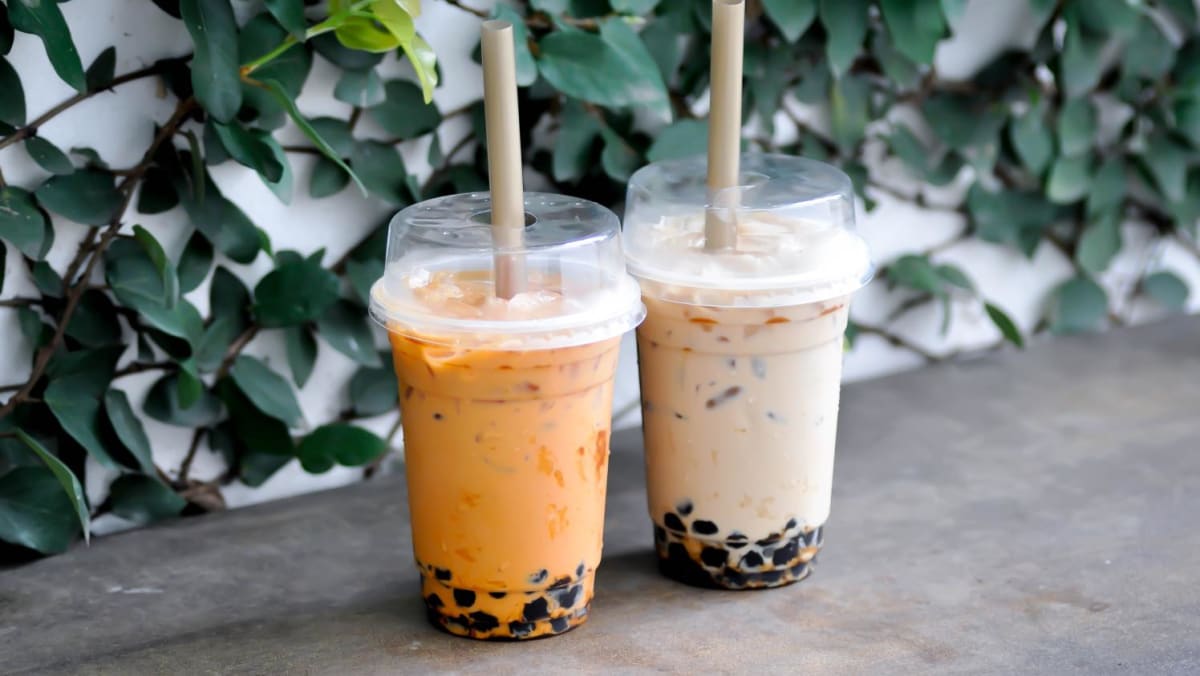SINGAPORE: Bubble tea lovers in Southeast Asia spend US$3.66 billion a year on the beverage and similar “new tea” drinks, with Singapore having the highest spending power despite its smallest population among the region's six key markets.
This was found in a study which provides analyses and insights into the business dynamics behind bubble tea.
Jointly conducted by venture outfit Momentum Works and digital payments solution firm qlub, the report also found that the average price of bubble tea in Singapore is double that of other countries in the region.
"(This makes) it a great entry point for premium brands,” Momentum Works said in a news release on Tuesday (Aug 16), adding that there are currently more than 60 active brands of bubble tea chains.
The largest market in the region is Indonesia, with an estimated US$1.6 billion annual turnover. Thailand came in second, with US$749 million through more than 31,000 bubble tea stores and other retail channels.
Vietnam is ranked third with US$362 million, with Singapore fourth at US$342 million.
Taiwanese and homegrown brands have “long dominated” the Southeast Asian bubble tea market, the study found.
“In addition, recently many Chinese brands have entered the region,” it added. “The bubble tea market in China is estimated to have an annual turnover of US$20 billion, saturating and hyper competitive.”
Chinese brands that have made their way into Southeast Asia include Mixue, Chagee and HEYTEA, all of which have outlets in Singapore.
HIGH MARGINS, LOW DIFFERENTIATION MARKET
However, the study found that despite the high margins, few bubble tea stores are profitable.
“The bubble tea industry has a good product gross margin of 60 per cent to 70 per cent,” the release said. “Yet, few players have managed continuous profitability at a large scale.”
It cited Nayuki, the first “new tea” brand to go public, whose market cap plunged by more than 70 per cent since it listed on the Hong Kong stock exchange.
“There is also an industry saying that nine out of 10 bubble tea stores lose money,” it added.
The study also highlighted that pricing is not the only factor that affects customers’ purchasing decisions.
“Customers also decide based on the product selection at stores, as well as the ease of access which means the number of stores a brand has,” it said.
Brands are also providing more health-conscious options to cater to customers, through customisable sugar levels and “healthier" alternatives like brewed fresh fruit tea.
“While consumers in Singapore are more health conscious, it’s not the same across other markets”, it added.
Last week, it was announced that Singapore will soon require food and beverage outlets to include nutrition labels on their menus to indicate drinks that contain higher levels of sugar and saturated fat. This includes bubble tea outlets.
Advertising prohibitions will also apply to such drinks. These measures are part of efforts to help consumers to make more informed, healthier choices, Health Minister Ong Ye Kung said.
Adblock test (Why?)
https://news.google.com/__i/rss/rd/articles/CBMifWh0dHBzOi8vd3d3LmNoYW5uZWxuZXdzYXNpYS5jb20vc2luZ2Fwb3JlL2J1YmJsZS10ZWEtY29uc3VtZXJzLXN0dWR5LXNvdXRoZWFzdC1hc2lhLXNpbmdhcG9yZS1tYXJrZXRzLWJ1c2luZXNzLWJyYW5kcy0yODg1NDg20gEA?oc=5
2022-08-17 04:37:00Z
1536560808




